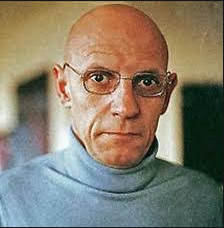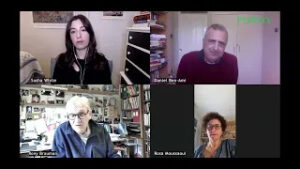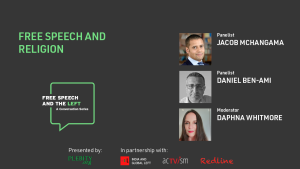
Licensed to the public under the Creative Commons Attribution-ShareAlike 4.0 International License
The synopsis below was originally posted on Redline and is written by Daphna Whitmore.
This is the second in a number of synopses of a critique of postmodernism from the book Cynical Theories: How Universities Made Everything about Race, Gender, and Identity – and Why This Harms Everybody by Helen Pluckrose and James Lindsay. Swift Press 2020. The first synopsis, which covers the early period of postmodernism, is here.
Queer theory has been profoundly influential on the development of postmodern theory into its more recent applied forms. It derives directly from postmodernism and is about liberation from the normal, particularly norms of gender and sexuality. It is frustratingly difficult to understand since it values incoherence, illogic, and unintelligibility. As we noted in the earlier piece on postmodernism this ideology fixates on language and sees the world as social constructions.
Queer theory sees the concepts of sex – male and female – and gender – masculine and feminine- as oppressive. The main objective of queer theory is to subvert these concepts and to break them down. Rejecting the possibility of there being a knowable objective reality, queer theory asserts that language creates the categories, enforces them, and scripts people into them. The boundaries are arbitrary and oppressive according to queer theory. These boundaries can be blurred into apparent absurdity and thus erased.
Queer theory grew out of the radical groups revolutionising feminist, gay and lesbian studies in the 1960s. The civil rights movements helped spark a new interest in the study of homosexuality. Throughout Christian history male homosexuality had been considered a heinous sin. This contrasted with ancient Greek culture where it was acceptable for men to have sex with adolescent boys until they were ready to marry – at which point it was expected that they would switch to having sex with women. In both cases, however, homosexuality was something that people did rather than who they were.
The idea that one could be a homosexual gained recognition in the nineteenth century and throughout the twentieth century attitudes shifted until a dominant liberal position came to be accepted. “Some people are gay. Get over it”. Queer theory considers this liberal idea which stresses common humanity problematic. It is theorised as a problem both because it represents LGBT identities as stable categories and because it does not treat sexual orientations as social constructs built by the powerful in the service of dominance and oppression. Since queer theorists believe that sex, gender, and sexuality are social constructions, they are less concerned about material progress than about how dominant discourses erect and enforce categories like “male”, “feminine” and “gay”.

Michel Foucault
The founders of queer theory include Gayle Rubin, Judith Butler, and Eve Kosofsky Sedgwick. They drew significantly on the work of Michel Foucault and his concept of biopower – the power of scientific (biological) discourses. Unfortunately, they seem to have missed the point that biologically legitimising sex, gender, and sexuality statuses tends to lead people to become more accepting, rather than less.
“Discourses” – how things are spoken about – is a major focus of postmodernism. Following Foucault, queer theory examines history and points out that categories and discourses that were once accepted as sensible or true in their own time are not accepted as such now. This is then used to argue that categories such as male/female, masculine/feminine, heterosexual/homosexual are also socially constructed by dominant discourses.
This is where the word queer comes in. “Queer” refers to anything that falls outside binaries (such as male/female, masculine/feminine, and heterosexual/homosexual) and to a way of challenging the links between sex, gender and sexuality.
Like other postmodern theories, queer theory is a political project. Its agenda is to challenge what is called normativity which is considered pejoratively. It produces a de facto coalition of minority gender and sexual identities under the appropriately unstable set of acronyms that tend to begin with LGBTQ. Its opposition to normativity is not confined to sex and gender, it has expanded to include time and space, and even queer theory itself.
This makes queer theory notoriously difficult to define, perhaps partly because being comprehensible would be inconsistent with queer theory’s radical distrust of language and would violate its ambition to avoid all categorisation, including of itself.
Papers that use queer theory usually begin by examining an idea, problematising it in “queering” or “genderfucking” ways and eventually concluding that there can be no conclusions. The incoherence of queer theory is an intentional feature, not a bug.
Few people are strict biological essentialists anymore, nearly everyone accepts that some combination of human biology and culture comes together to create expressions of sex, gender and sexuality. As evolutionary biologist E.O. Wilson states, “No serious scholar would think that human behaviour is controlled the way animal instinct is, without the intervention of culture”.
The queer theorists take a different view. They are radically socially constructivist. There can be absolutely no quarter given to any discourse – even matters of scientific fact – that could be interpreted as promoting or legitimising biological essentialism. If biology makes any appearance in queer theoretical scholarship it is usually to problematise it as just one way of knowing that is encoded in the biases of powerful groups, such as straight men who identify as men; or to demonstrate something that no one denies – that intersex people exist. Intersex are used to obfuscate the facts that an overwhelming proportion of humans are either male- or female-sexed and that gender expression in humans is overwhelmingly bimodal in nature and strongly correlated with sex.
Foucault argues that power runs through the whole system of society, which he calls the “omnipresence of power”. Foucault considers power is present at all levels of society because certain knowledge has been legitimised and accepted as true. Consequently, speech is to be closely scrutinised for which discourses it is perpetuating, under the presumption that racism, sexism, homophobia, transphobia, or other latent prejudices must be present in the discourses and thus endemic to the society that produces them. These basic premises of Foucault in the 1970s became the philosophical foundation of the queer theory of the 1990s which included a deep suspicion of science as an oppressive exercise of power rather than a knowledge producer, a skepticism of all categories that describe gender and sexuality, a commitment to social constructivism and an intense focus on language.
The next segment will look at the ideas and influence of Judith Butler.



